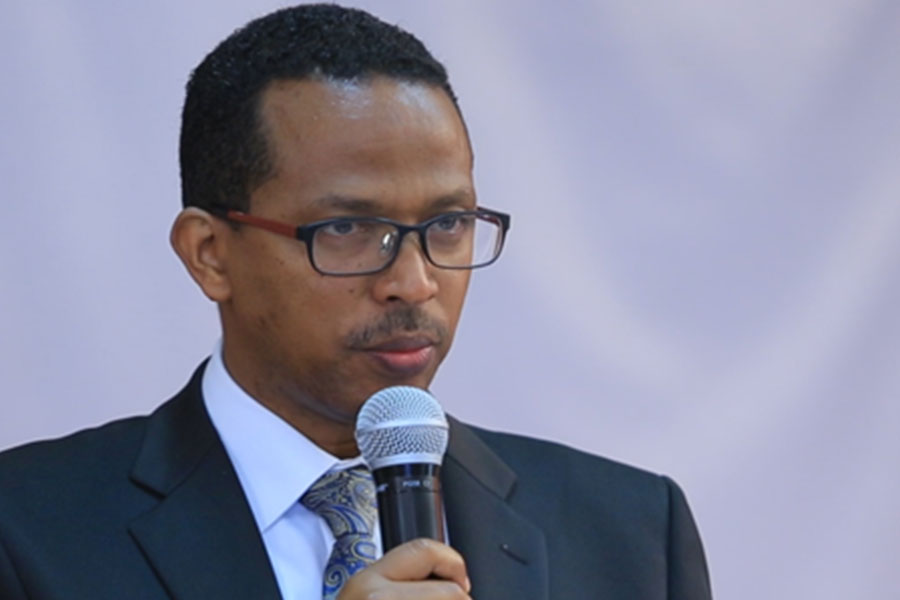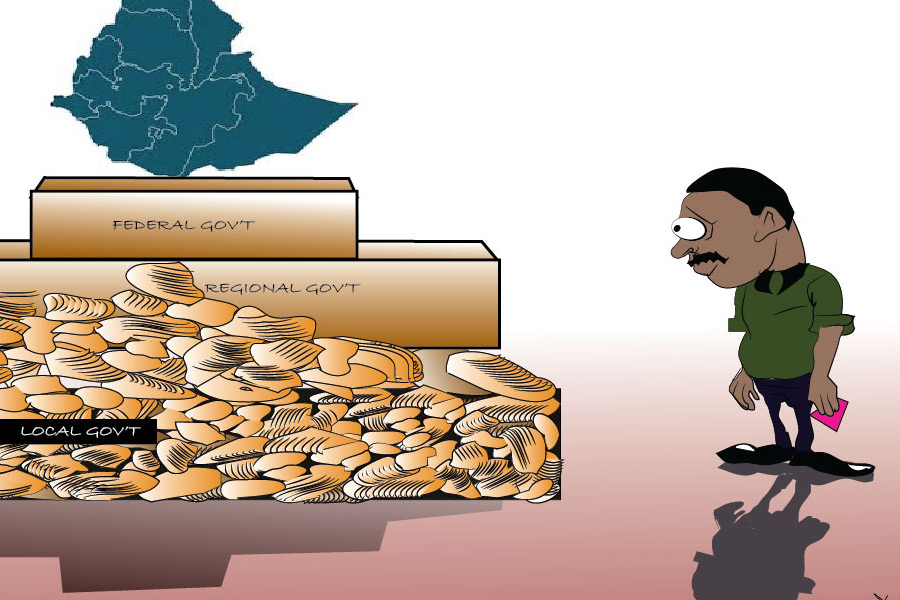
Editorial | Jun 19,2021
Dec 19 , 2018
By Zelalem Eshete (PhD)
Ethiopia is an extremely diverse but intertwined nation. We think we have only two choices: either to stress unity at the expense of diversity or concentrate on diversity by neglecting unity. But there is a third, although complicated, path we can take. We can foster diversity as the foundation of building unity. This can be our jumping off point to build a democratic and just nation.
The efforts that have been undertaken by Prime Minister Abiy Ahmed (PhD), especially in inviting opposition parties for a discussion, is admirable.
But the focus of the negotiation between the different contending parties seems to focus on the 2020 general election. Strengthening institutions such as the Electoral Board and the courts is necessary for a free and fair election to be had. But these in themselves do not suffice. We need to begin reforms at the foundations that make up the nation.
We can begin by implementing an idea forwarded by the Prime Minister - ensure that the past does not determine the future. To this end, we need to articulate and formulate values that should be part and parcel of our everyday lives. It requires focused efforts by the Ethiopian elite to expound this idea and lay out the foundation for its realisation.
This part of the nation-building process concerns itself specifically with society. It can be the bedrock that informs the shared values we want to take us forward as well as initiating the healing process that is necessary to live and prosper together.
Then, we can begin consensus building on the future of the country through a democratic process. We need to accomplish two main prerequisites for this to occur. The first are parties who can consolidate forces under similar ideological leanings and provide political programmes and ideas they believe the nation should follow.
Then the people can find clarity in the choices available for the direction Ethiopia needs to take. We have an opportunity for the real practice of democracy in our land, and this is what makes democracy work, even if it takes time.
We also require an informed citizenry for this stage of the process to generate a favourable output. This is when the involvement of the media, especially the public media, and transparency is most crucial. The process should be fair for all to take part in and be open enough for ideas to circulate and evolve. This is another part of the process that requires a substantial amount of patience and compromise between people as well as parties.
A free and fair general election is the third prerequisite and gives value to the process that came before to create a democratic state. It cannot be rushed or compromised. More than anything else, it has to come after the public has regained its trust in the democratic institutions of the nation. Just as crucially, the contending parties need to accept the decisions given by the institutions.
But the election does not only require the institutions to rise to the challenge. It needs to be reinforced by parties that have consolidated forces and can forward political and economic alternatives to the problems that afflict the country. The public as well needs to make its choices based on reason and not emotion. The election is special, and more is involved than just making sure the election is fair.
Given that the incumbents have finally walked the talk to open up discussions with opposition parties, it is preferable to hold the election after a consensus has been reached. There is a danger in allowing incumbents to stay in office beyond the mandated limit, but there is just as much peril in pushing forward with an election before the foundations for a democratic nation are laid.
PUBLISHED ON
Dec 19,2018 [ VOL
19 , NO
973]


Editorial | Jun 19,2021

Fortune News | May 29,2021

Viewpoints | May 15,2021

Fortune News | Jan 05,2019

Editorial | Dec 10,2018

Editorial | Jun 25,2022

My Opinion | Jul 13,2020

Sunday with Eden | Feb 27,2021

Viewpoints | Jan 18,2019

Sunday with Eden | Feb 16,2019

My Opinion | 132041 Views | Aug 14,2021

My Opinion | 128437 Views | Aug 21,2021

My Opinion | 126364 Views | Sep 10,2021

My Opinion | 123983 Views | Aug 07,2021





Dec 22 , 2024 . By TIZITA SHEWAFERAW
Charged with transforming colossal state-owned enterprises into modern and competitiv...

Aug 18 , 2024 . By AKSAH ITALO
Although predictable Yonas Zerihun's job in the ride-hailing service is not immune to...

Jul 28 , 2024 . By TIZITA SHEWAFERAW
Unhabitual, perhaps too many, Samuel Gebreyohannes, 38, used to occasionally enjoy a couple of beers at breakfast. However, he recently swit...

Jul 13 , 2024 . By AKSAH ITALO
Investors who rely on tractors, trucks, and field vehicles for commuting, transporting commodities, and f...

Jul 12 , 2025
Political leaders and their policy advisors often promise great leaps forward, yet th...

Jul 5 , 2025
Six years ago, Ethiopia was the darling of international liberal commentators. A year...

Jun 28 , 2025
Meseret Damtie, the assertive auditor general, has never been shy about naming names...

Jun 21 , 2025
A well-worn adage says, “Budget is not destiny, but it is direction.” Examining t...

Jul 13 , 2025 . By YITBAREK GETACHEW
The Addis Abeba City Revenue Bureau has introduced a new directive set to reshape how...

Jul 13 , 2025 . By BEZAWIT HULUAGER
Addis Abeba has approved a record 350 billion Br budget for the 2025/26 fiscal year,...

Jul 13 , 2025 . By RUTH BERHANU
The Addis Abeba Revenue Bureau has scrapped a value-added tax (VAT) on unprocessed ve...

Jul 13 , 2025 . By NAHOM AYELE
Federal lawmakers have finally brought closure to a protracted and contentious tax de...